Joyful crowd on Freedom Avenue calls for promises to be held
[TIL #25] At 50, the carnation revolution is young at heart and hungry for social justice
At 1 pm on the 25th of April, the Avenida da Liberdade (Freedom Avenue) was mine and almost mine alone. Under the elegant green vault that provides shade to that central and flashy avenue in Lisbon, i saw a few pedestrians and a couple of cyclists1 — and a woman standing at a corner next to buckets full of red flowers. Temporarily liberated from traffic, the avenue would soon be packed with marchers.
On that day, Portugal celebrated the 50th anniversary of the end of dictatorship and the emergence of democracy.2 There were official ceremonies and a reconstitution of the itinerary followed by the revolutionaries in 1974: on Largo do Carmo, the square where the authoritarian regime surrendered to captain Salgueiro Maia, the historical armoured vehicles had to slowly make way through a dense crowd that was not repelled by the exhaust fumes. The multitude cheered and clapped. People warmly wished each other a happy 25 de Abril.
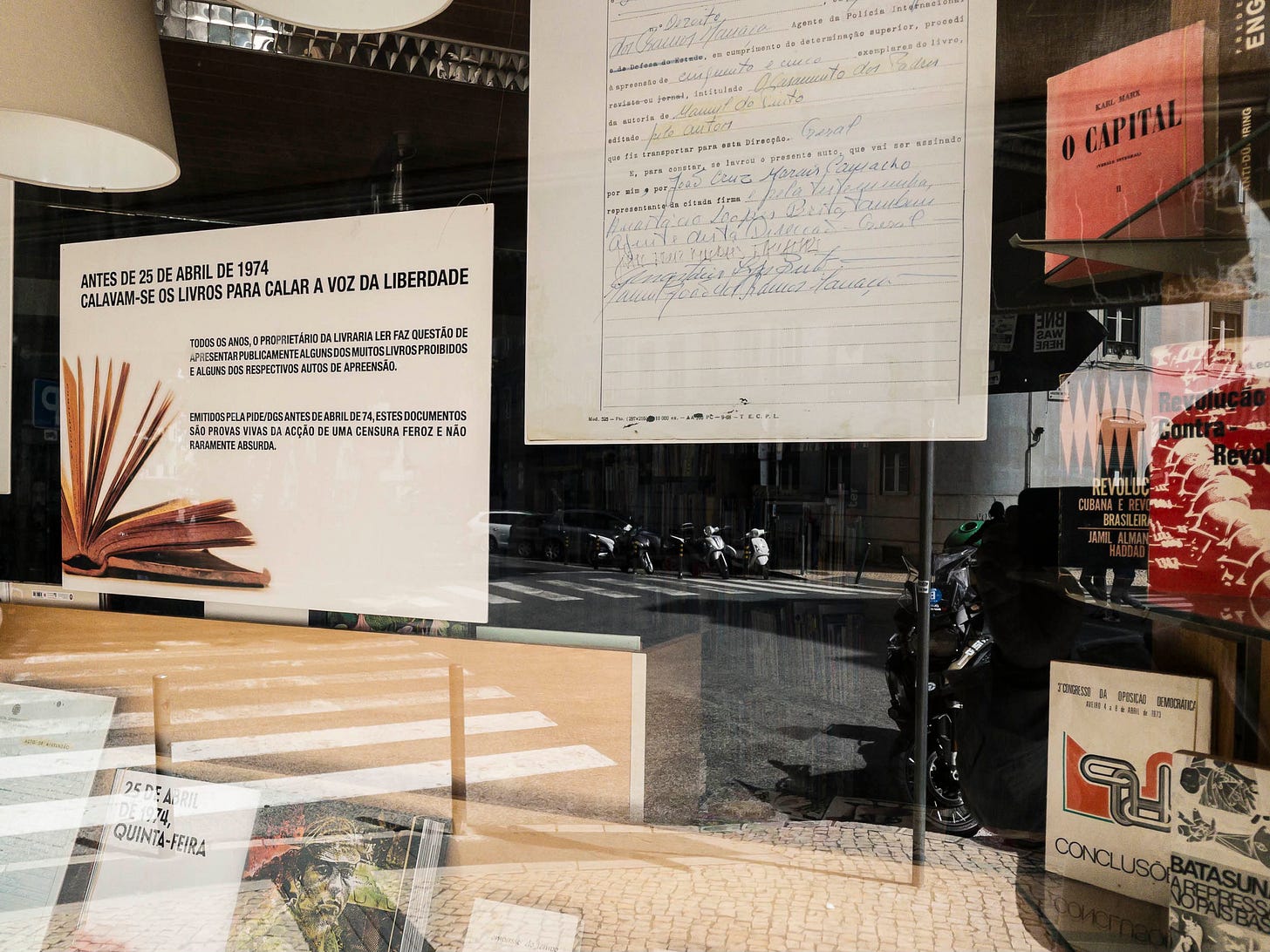
One can get a sense of the atmosphere that reigned on the 25th of April 1974 by looking at a photograph of Alfredo Cunha. A young photojournalist at the time, Cunha covered the progression of the rebellion through Lisbon and offered the revolution some of its iconic images. In one picture, we see two kids, possibly excited by the opportunity to take a close look at guns, chat with two soldiers in the middle of the military coup: one of the soldiers is lying in the street, the other is leaning on a knee, both are holding their weapon, ready to jump into action. On the sidewalk behind them, a crowd is watching the events. It may have been that the authoritarian regime of Estado Novo was rusty, it may have been that the population was hungry for freedom — when the ‘young captains’ leading the revolution had the courage and audacity to claim that the times had come for a change, the coup unfolded peacefully while a growing crowd filled the streets.
An omnipresent symbol, the red carnation gave its name to the revolution. It so happened that a waitress had been sent home by her employers with a bouquet of flowers: the owners of the restaurant where she worked had bought flowers to celebrate the first anniversary of their business but, upon hearing on the radio that a revolution was taking place, decided to close for the day. Rather than going home, Celeste Caeiro decided to go and see what was happening. She started talking with one of the rebel soldiers and when he asked her for a cigarette she ended up giving him a flower, which he planted in the barrel of his weapon — thus launching, as we would say in today’s parlance, a trend that went instantly viral.
And there was a song. There is always a song. You may have heard this one in season 5 of Netflix’s la casa de papel. In 1974, Grandôla vila morena by Portuguese songwriter José Afonso was broadcast on radio as a signal to launch the revolutionary movement. During the parade, the song, which speaks of fraternity and people power, is played repeatedly on loudspeakers, every time driving the marchers to sing along. And quite a few times, i heard one voice launch into the song, soon to be joined by others, a small choir engaging in their own ceremony for a few minutes. People also chant ’25 de Abril sempre - fascismo nunca mais’ (25th of April for ever - fascism never more) and ‘o povo unido jamais sera vencido’ (the people united will never be defeated).
Today, political parties still invoke Abril in their electoral slogans. In the March 2024 general elections, the turnout was of 66 %. It may have been a record for the country but, as someone coming from a democratic country where the right to vote is a legal duty, i'm always horrified by the levels of abstention. A shocking result of the vote was that the far-right party rose to 18 % and became the third party in the assembly. Are we about to lose democracy, are we forgetting the importance of freedom, a few Portuguese friends would ask in recent conversations. And in the parade, placards declared that the 50th anniversary should not be only about celebration: we should take care of democracy.
There is much more to the 25th of April than an official commemoration. Every year, the parade constitutes a catalogue of demands for social justice, such as affordable housing, decent income and working conditions, gender equality, adaptation to climate change, and peace in Ukraine and Palestine. Placards claim that the promises of April 1974 must be held.
I saw a few placards lament that the bourgeoisie had killed poetry while others claimed that poetry was in the street. Under the slogan of ‘vida justa’ (fair life), a banner reminded everyone that the carnation revolution was actually born in Africa, in the country’s former colonies, where independence movements preceded and precipitated the preparation of the 25 de Abril.
Revolutions may sometimes be necessary to overthrow regimes of oppression and inequality, but they rarely end well. This one succeeded. It took months of turmoil and unrest punctuated by radical reforms (collective management of factories, expropriations and agrarian reforms) and counter-revolutionary reactions, but — under the concerned eyes of the eastern and western blocks — the country emerged a democracy. A decade later, it would become a member of the European Union.
The democracy that was born out of April 1974 is sometimes described as unfinished. In the current context, there are many legitimate reasons for concern and discontent. A celebration of freedom, the 25 de Abril also is democracy on its feet chanting its hopes and demands. Towards the end of the parade, a placard warned: We will repeat the Abril revolution if necessary.
Someone commented in a WhatsApp conversation: ‘everything is full near the revolution today.’ This related to how hard it would be to find a place for a drink or a bite, but i find it interesting that they wrote ‘the revolution’ (and not ‘the parade’, or ‘the avenue’), thereby sort of assimilating the historical event and its commemoration in one word: the revolution was in 1974, and the revolution is today, alive, joyful and hungry for social justice.
I started this newsletter 6 months ago and I just wanted to say that i’m very grateful to everyone who subscribes and reads the Tales of Ink and Light. A warm, heartfelt thank you for being on board.
This reinforced my conviction that this beautiful avenue should be reserved to pedestrians and cyclists much more often.



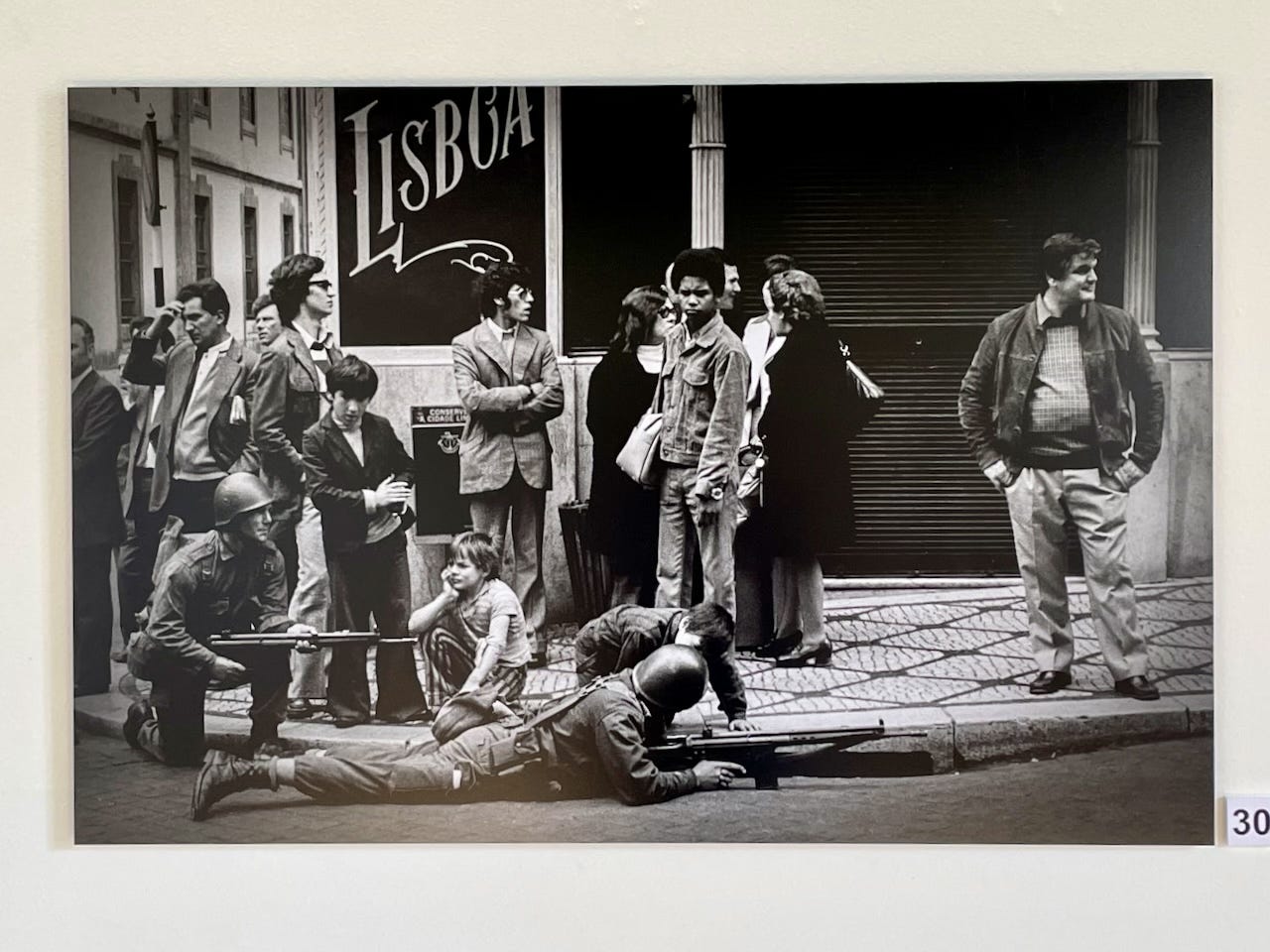

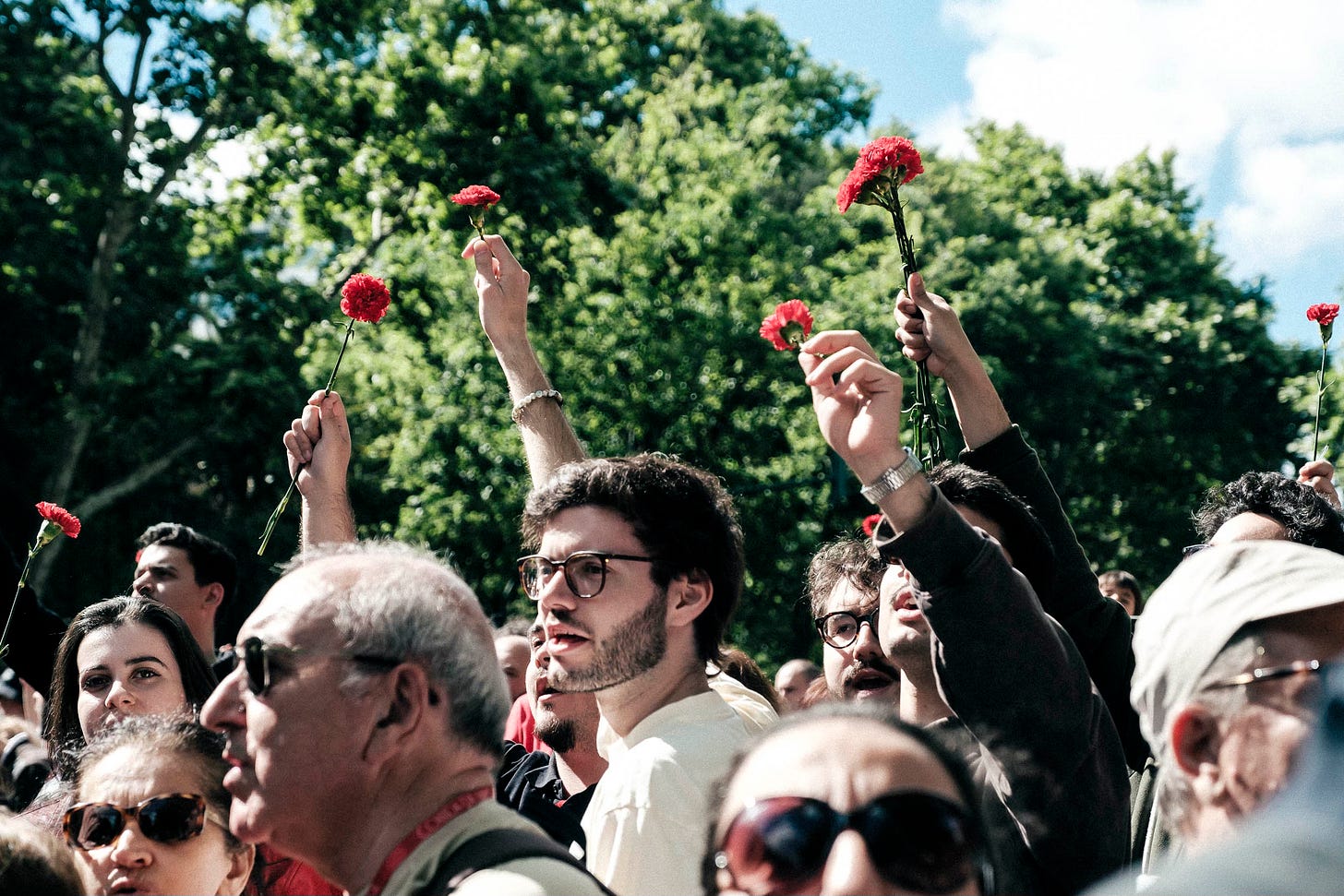

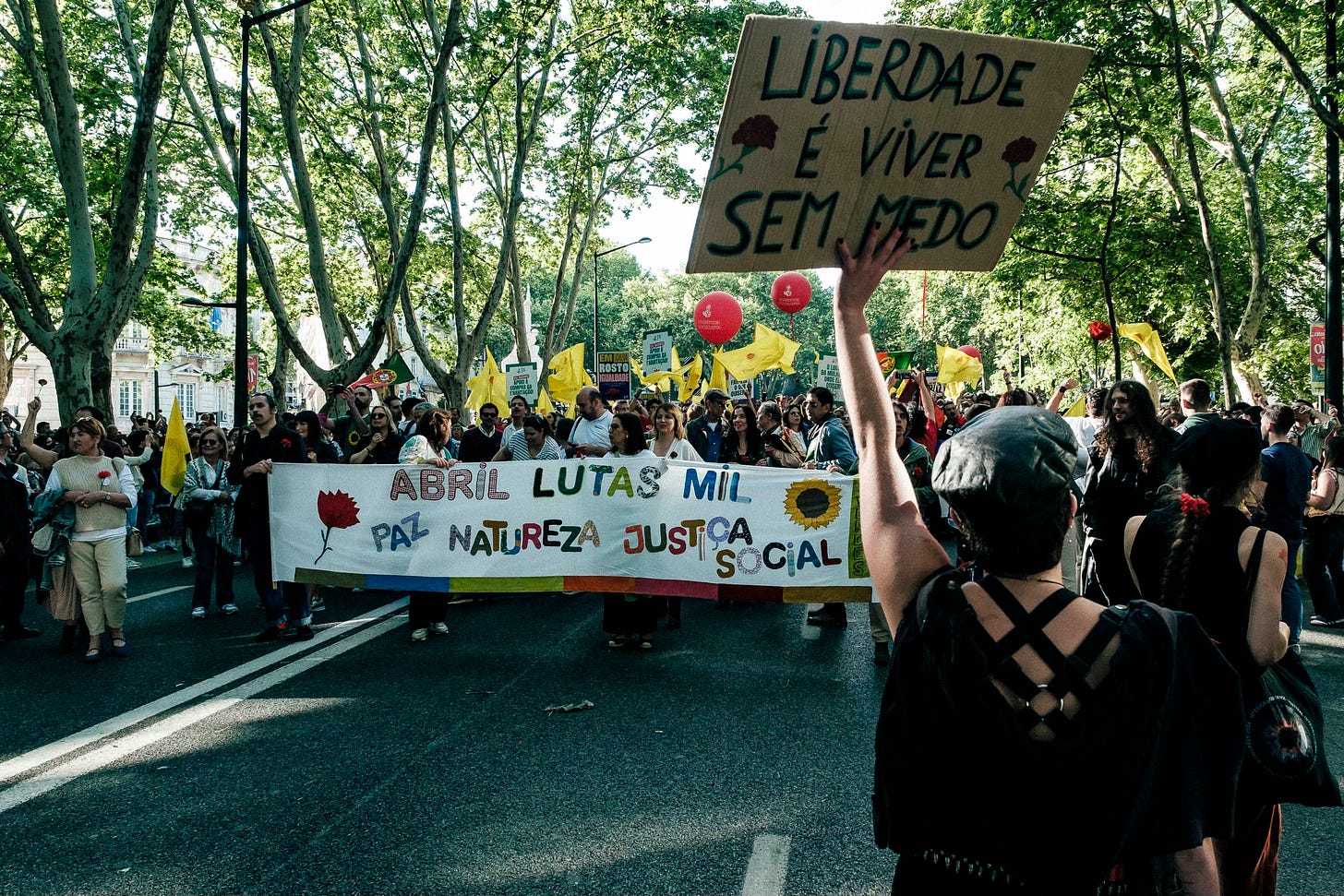

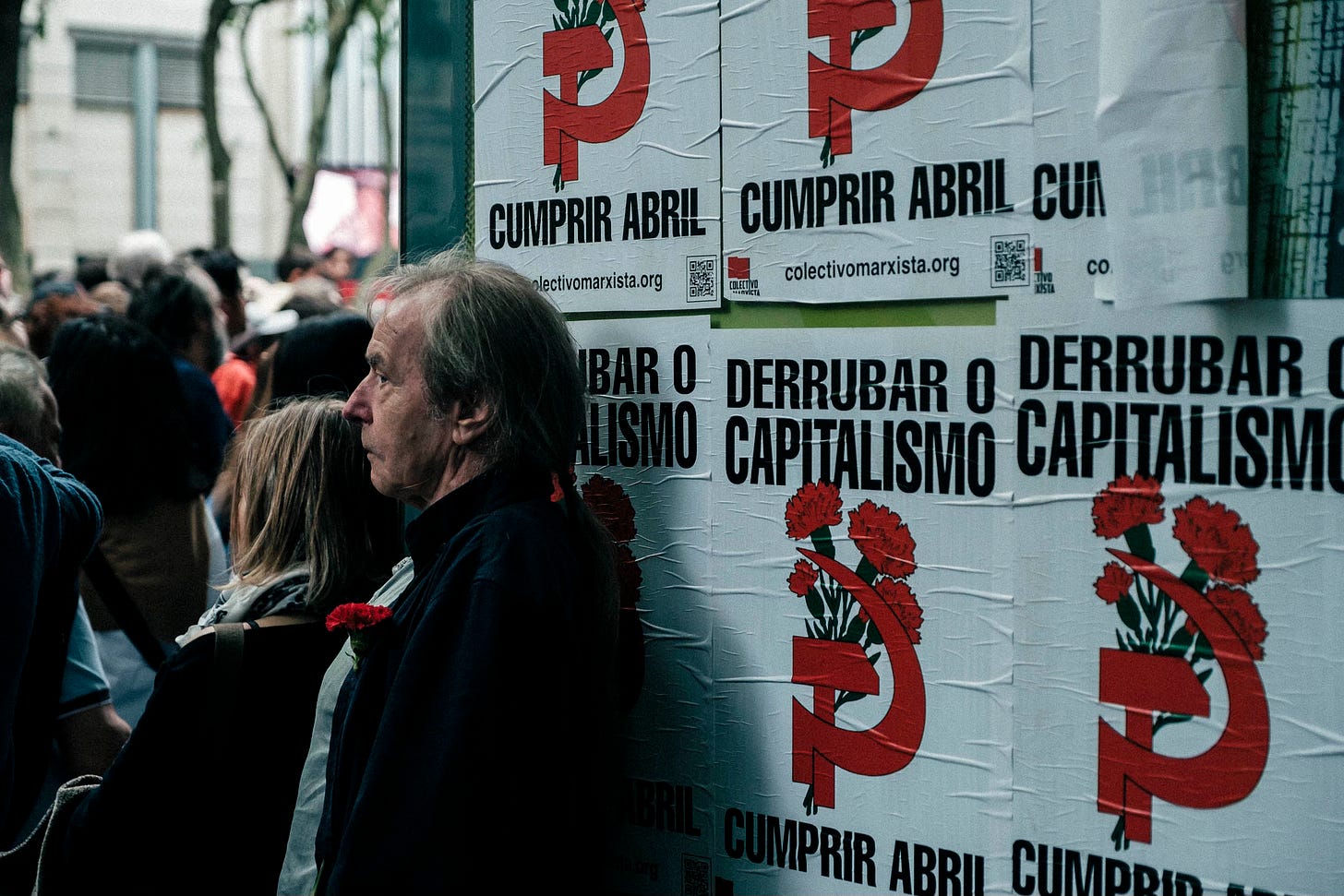
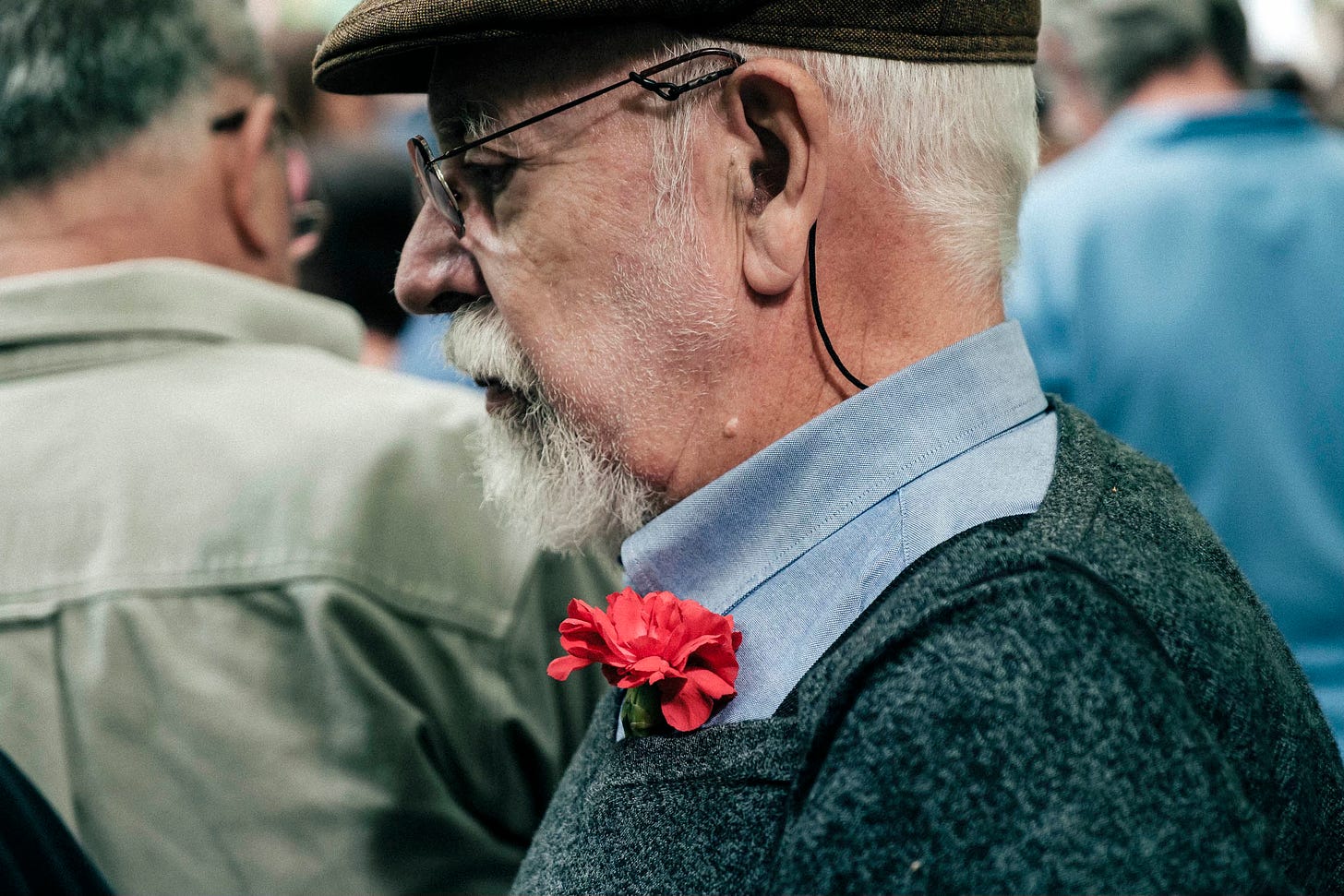

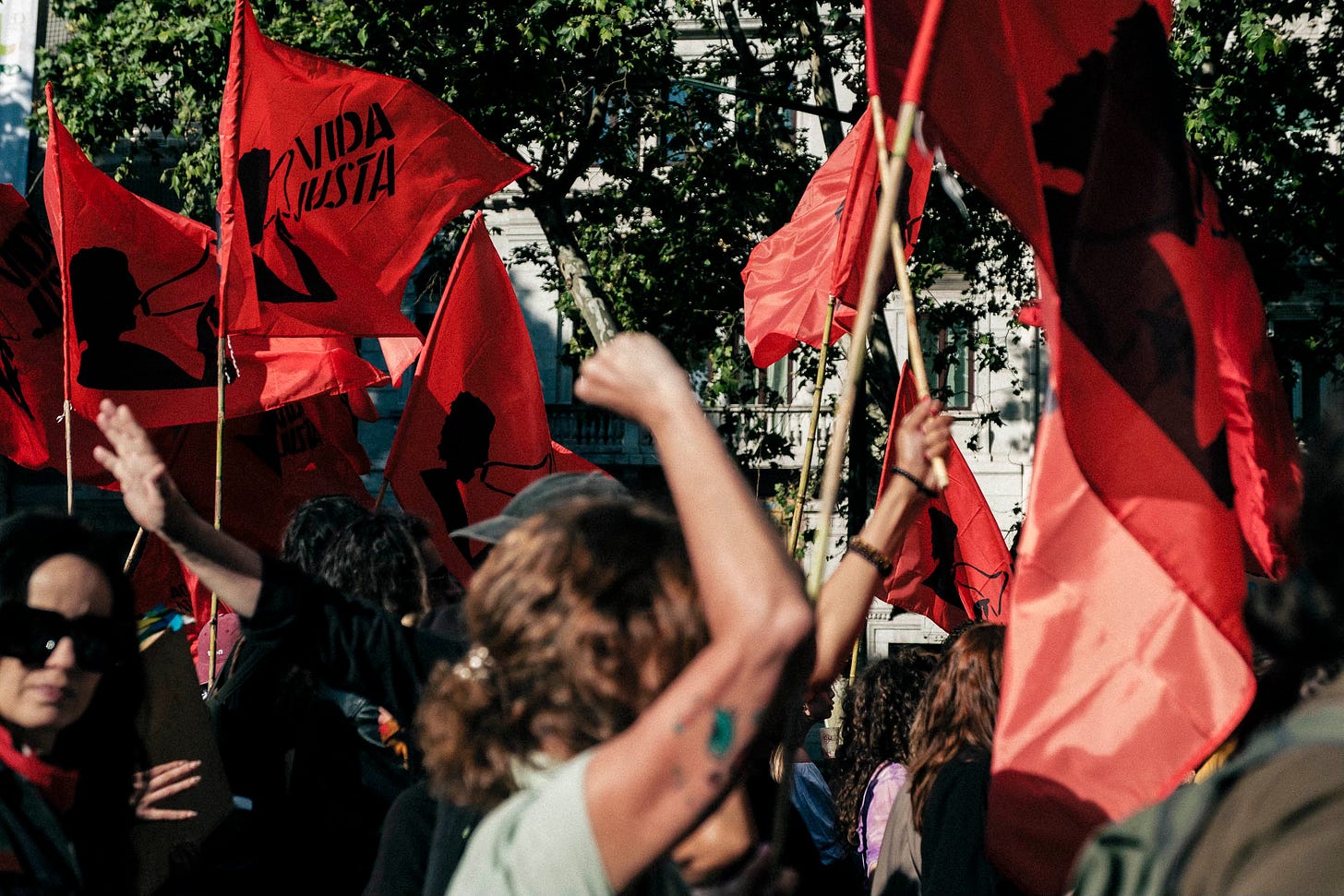
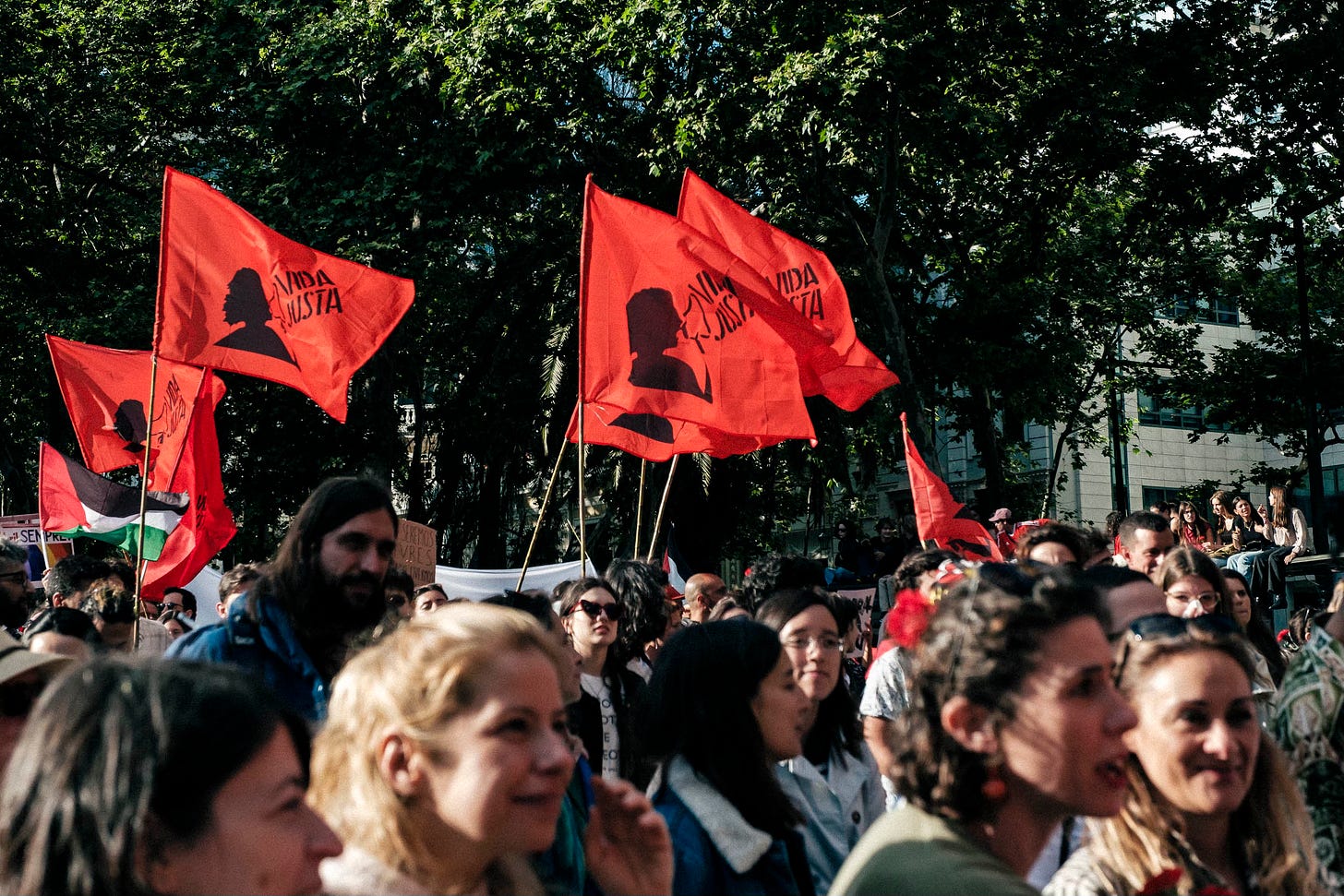




Very interesting post. Having spent time living in Portugal and constantly reading up about its history this was an informative post. Thank you!
Thank you for sharing this. It was an interesting read. Much appreciated.